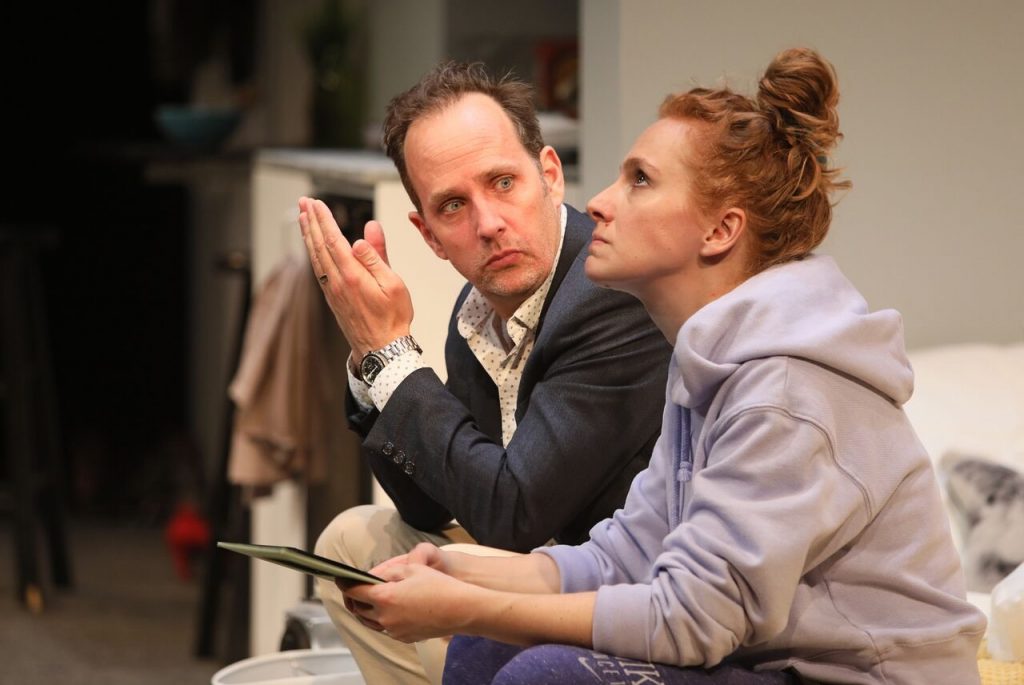
Credit: Tim Matheson
At the Firehall Arts Centre until June 9, 2018
Tickets from $20 at tickets.firehallartscentre.ca
Posted June 4, 2018
Playwright Amy Lee Lavoie could not have predicted the #MeToo movement when she started writing C’mon, Angie! a year and a half ago. The subject of sexual harassment/sexual assault/consent has skyrocketed in last few years and C’mon, Angie! could not be more timely. Take your sons and daughters, your granddaughters and grandsons to see it. The play will spark conversations – probably heated – across gender and generational lines.
It’s not a comfortable play. A long-time feminist, I found myself uncomfortably on the side of the guy (Reed) now and again. Accepting drinks from Reed, getting drunk and then inviting him back to her apartment, Angie must have known they weren’t going to her place – a bed sitting room – for hot chocolate and Oreo cookies. What was she thinking?
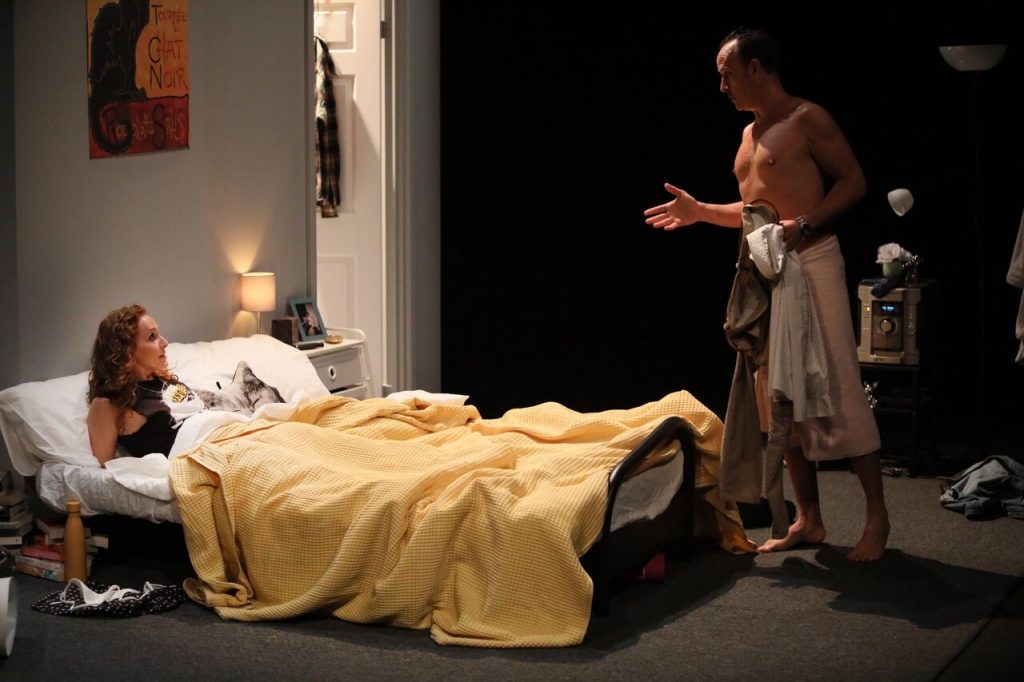
Credit: Tim Matheson
On the other hand, it’s much more complicated than that and going into too many details of what transpired that night would skew your take on C’mon, Angie! so I won’t go there.
Here’s the basics: Angie, single and in her 20s, works for Reed’s wife, a pharmacist. Sometime in the past she has been to their house for dinner. So she has met Reed, she knows there are a wife and a child in Reed’s life. What she doesn’t know is that Reed harbours fantasies about her. His life is humdrum, he’s probably in midlife crisis and bemoaning the fact that he’s never been spontaneous. Tonight, with Angie, maybe he thinks he can recapture a past he never actually had.
A note from the publicist tells me Angie is in her 30s, not her 20s.
What Angie expects from Reed is not obvious. A generation younger, she might simply be looking for another, different sexual experience? A what-the-hell sexual encounter? A pity fuck?
The night gets complicated: the first time they have sex, it’s consensual, sort of: Angie, drunk and already bored with Reed, figures it’s easier to have sex than to refuse him at this point. Despite the fact that she has told him about having fantasies about having her hair pulled and being choked, there’s no violence this night; that’s not Reed’s style.
But the night doesn’t end there.
The play opens in the morning at 4:58:13 on the digital clock with Reed showering in Angie’s bathroom. “Do you have any neutral-smelling soap?”, he asks cheerfully from offstage. Angie, still in bed, but awake, doesn’t respond. Clothing litters the floor; a lampshade is dented and toppled over. Reed, when he appears from the bathroom, is upbeat, happy; Angie is cold and unresponsive. No goodbye kiss when he goes to leave. Uh-oh.
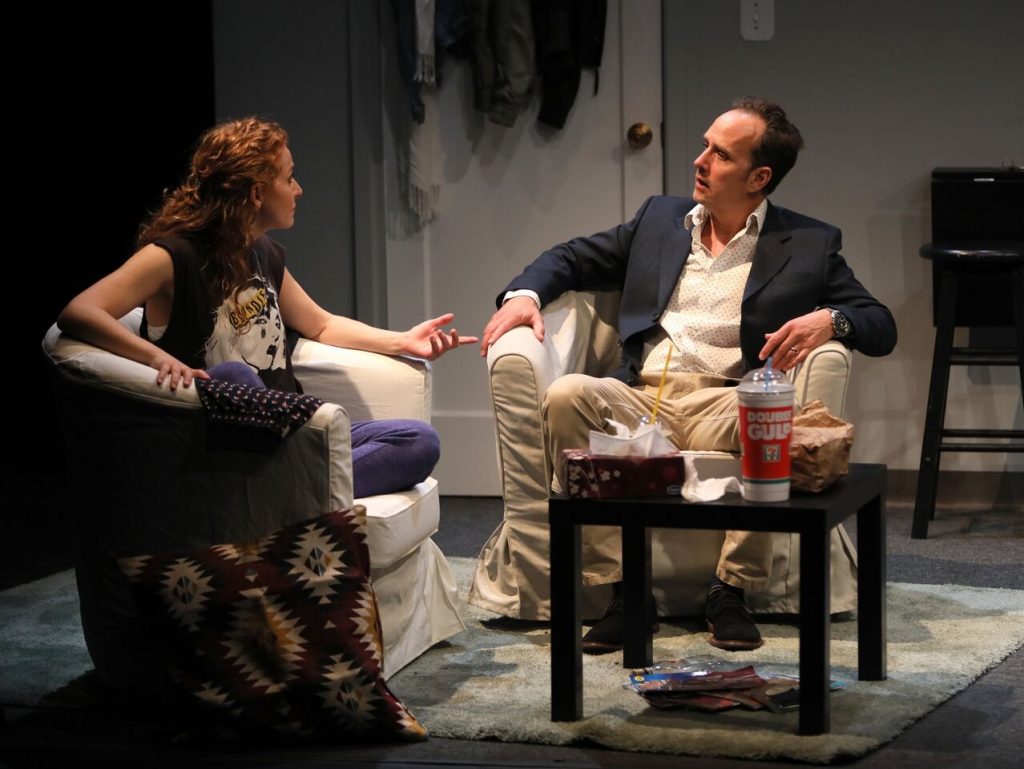
Credit: Tim Matheson
C’mon, Angie! is as real as it gets and it’s easy to forget that Kayla Deorksen and Robert Moloney are just actors. It feels like we are flies on the wall of Angie’s tiny studio apartment so completely do these two fearlessly embrace these characters and the situation. Deorksen, as Angie, is a spitfire and we get the feeling that Angie has history that we never get to know about. It’s a problem with the play, perhaps, that we don’t get to see Angie in any light other than confrontational.
Mamet’s Oleanna comes to mind right away and we see some resemblance between the young women in both plays, especially in the power imbalance between generations, genders and financial standing.
Moloney’s Reed is sort of a hapless, bumbling but amiable guy. He’s not a sexual predator; you get the feeling this is the first time he has cheated on his wife. Older than Angie and married for years, consent is not something he has had to ask for for years. At the same time, he hasn’t been living under a rock for the last decade. Does he know he’s stepped over the line? Has he stepped over the line? I don’t know.
During the talkback with a rep from WAVAW (formerly Women Against Violence Against Women) and Roy Surette (indicated in the program as “Mentor and additional dramaturgy”), I really wanted to ask if C’mon, Angie! had changed or confirmed Deorksen and Moloney’s personal positions on consent. That’s how real the production, a Flying Start initiative of Touchstone Theatre, feels.
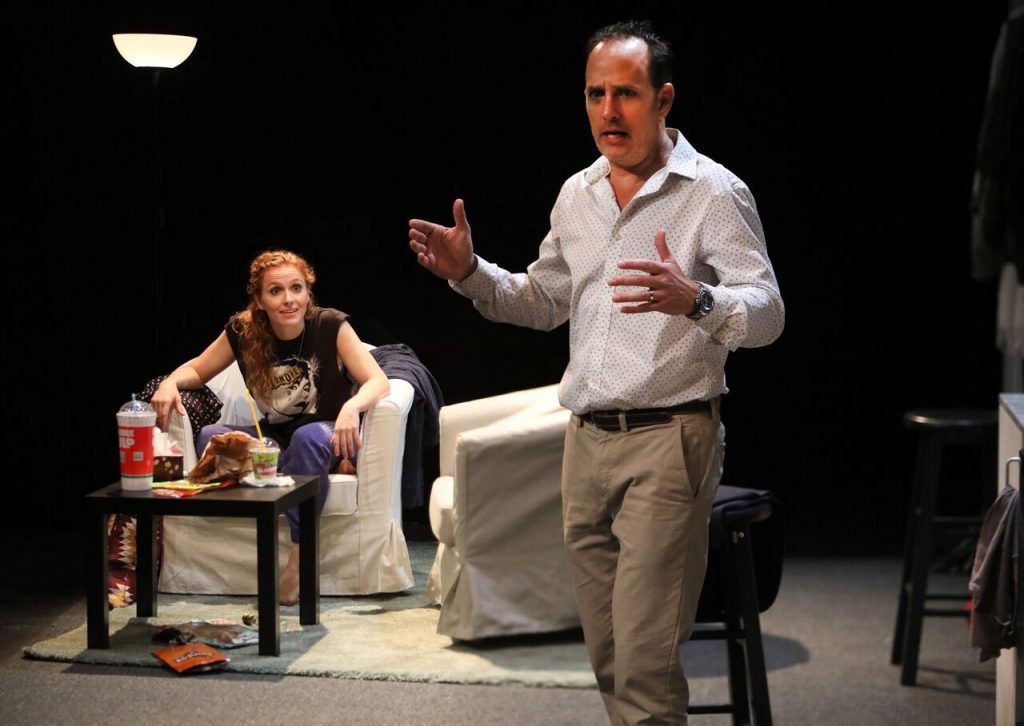
Credit: Tim Matheson
My sympathy for the characters shifted back and forth but it was obvious during the talkback that there’s a generation gap in the reaction to the play. My take is an unpopular one with some young women who say they should be able to drink as much as they like, wear whatever they like and take whomever they like to their apartment; if a guy gets the wrong idea, that’s his problem. In our supercharged, sexualized, liberal culture it’s almost impossible for young women not to buy that argument. But responsibility is a two-way street.
By the end of the play, I had lost much of my sympathy for both characters but was really fired up by the debate.
Ultimately, consent is consent. Is there such a thing as ‘tacit consent’? Is explicit, verbal consent a requirement between partners who have already had sex earlier in the evening? Is consent required between married partners? Are there circumstances in which consent isn’t required? The whole thing is a minefield.
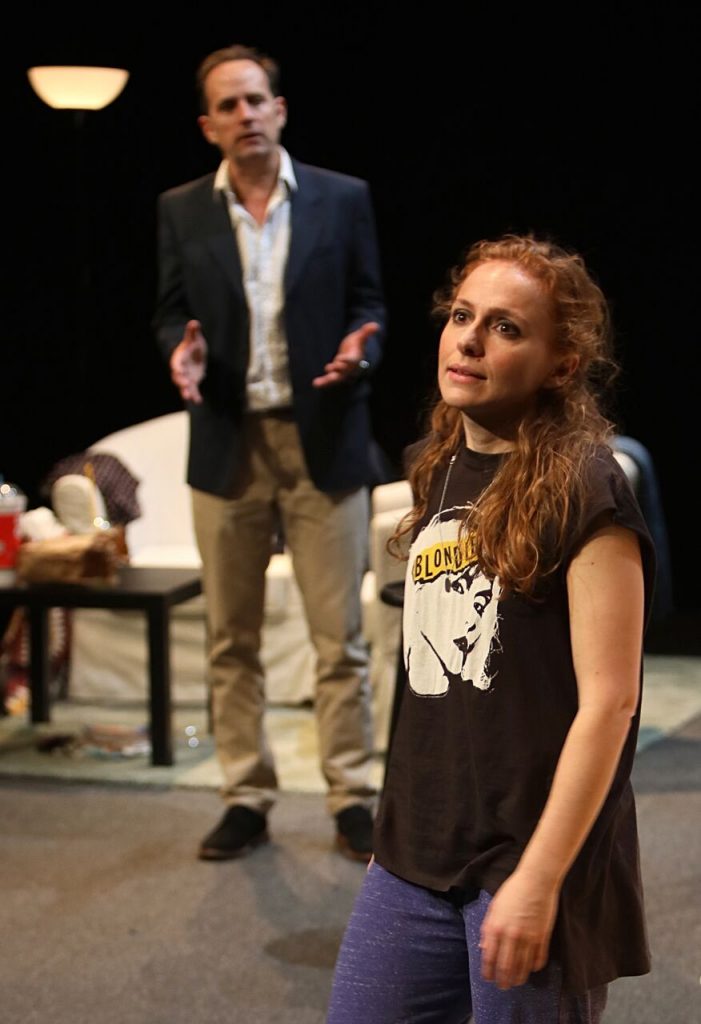
Credit: Tim Matheson
And where’s the line between poor judgement and an indictable offence?
Directed and dramaturged by Lauren Taylor, C’mon, Angie! lives up to Touchstone Theatre’s reputation for provocative theatre. It’s sexually explicit and although a child’s price is advertised, there’s an audience advisory: “This plays deals with dialogue around sexual consent, coercion and the theme of sexual assault between familiar partners. It features strong language, sexual references, and descriptions”.
C’mon, Angie! is a great place to start the discussion, however, and for the protection of everyone, the discussion needs to happen.

